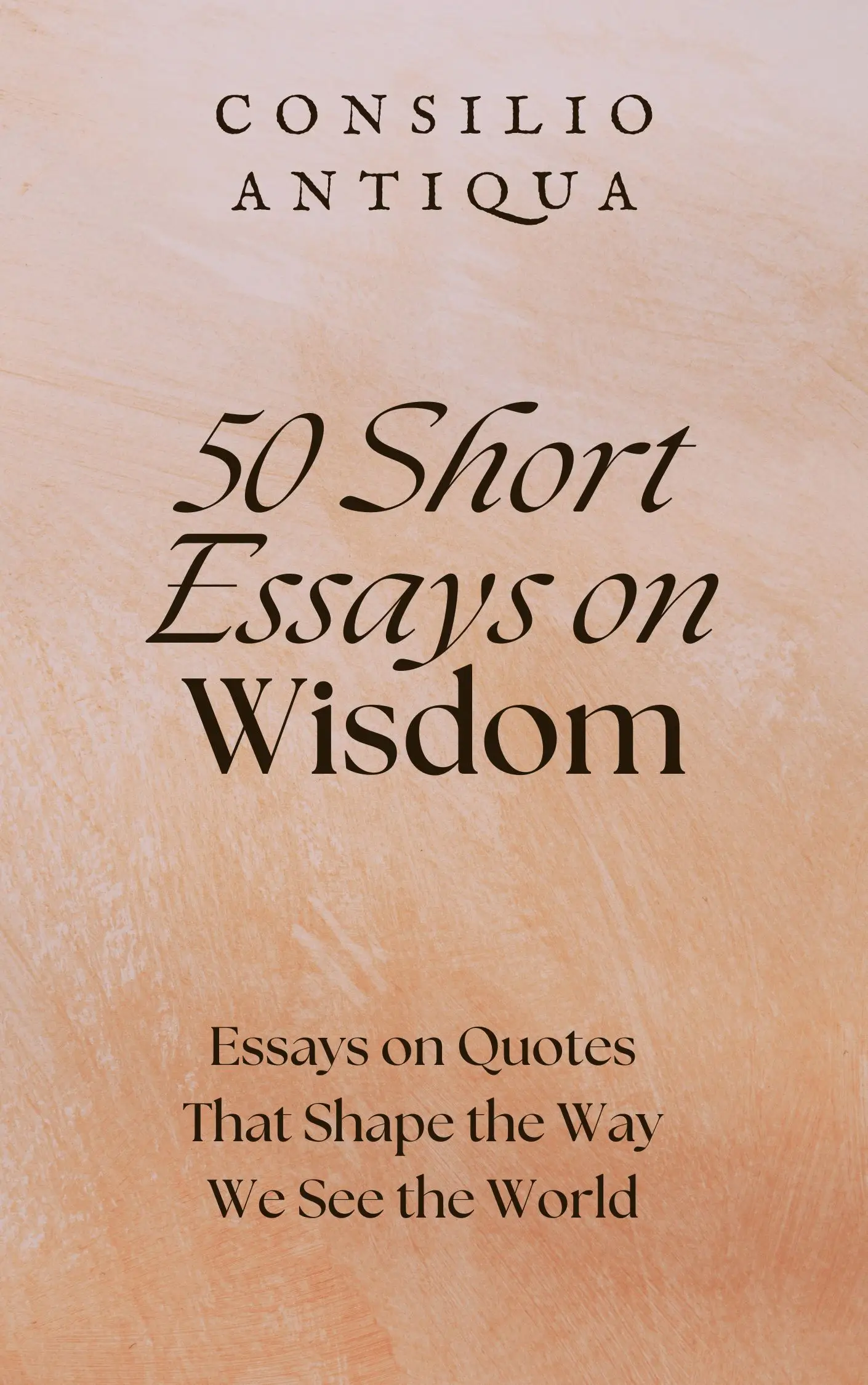
50 Short Essays on Wisdom | Finding Balance in a World of Motion
Finding Balance in a World of Motion
"A rolling stone gathers no moss." - Publilius Syrus
The old adage, “A rolling stone gathers no moss,” whispers of a life in perpetual motion. But is this a testament to freedom or a lament for rootlessness? This proverb, echoing through centuries, invites us to consider the delicate balance between stability and change, a tension particularly resonant in our fast-paced modern world. This essay will explore the enduring wisdom of this seemingly simple statement, examining its historical context and applying its nuanced meaning to the complexities of contemporary life.
The proverb's origins are shrouded in the mists of time, its precise authorship lost to history. However, its sentiment resonates across cultures and eras. In ancient Greece, the concept of impermanence was central to philosophical thought. Heraclitus's famous dictum, "No man ever steps in the same river twice," captures a similar spirit of constant flux. The rolling stone, therefore, became a metaphor for a life unburdened by the accumulation of material possessions or societal expectations, a life dedicated to experience and exploration. Yet, even in antiquity, the potential drawbacks of such a nomadic existence were recognized. The lack of roots could lead to isolation and a sense of displacement.
The core wisdom of the proverb lies in its ambiguity. The "moss" can symbolize many things: material possessions, societal constraints, even emotional attachments. The rolling stone, then, represents a life dedicated to movement, to shedding the weight of the past and embracing the unknown. This can be a liberating force, fostering adaptability and resilience. The individual who embraces change, who is not afraid to let go of what no longer serves them, can navigate life's challenges with greater ease. However, the absence of moss can also signify a lack of connection, a sense of rootlessness that can leave one feeling adrift. The proverb doesn't advocate for constant motion; rather, it prompts us to consider the nature of our attachments and the balance we seek between stability and change.
In our modern world, the pressure to accumulate – wealth, possessions, status – is immense. We are bombarded with messages urging us to strive for more, to achieve, to acquire. Yet, the rolling stone reminds us that true fulfillment may lie not in accumulation, but in the journey itself. Consider the individual who constantly chases promotions, sacrificing personal relationships and well-being for career advancement. Or the entrepreneur who relentlessly pursues the next big idea, neglecting their health and family in the process. These are examples of the potential pitfalls of unchecked ambition, a relentless pursuit of motion without mindful consideration of the destination. Conversely, the wisdom of the rolling stone can also guide us towards intentional change, encouraging us to shed limiting beliefs, unhealthy relationships, or unproductive habits that hinder our growth.
The rolling stone's wisdom is not a call to reckless abandon, but a gentle nudge towards self-awareness. What moss are we accumulating? Is it nourishing or hindering our growth? What kind of motion do we truly desire? Do we crave the exhilarating freedom of the open road, or the comforting embrace of a settled life? The answer, I believe, lies in finding a balance, in cultivating a life that embraces both movement and stillness, change and stability. This requires mindful intention, a willingness to shed what no longer serves us, and the courage to embrace the unknown. The journey, after all, is as important as the destination.
“A rolling stone gathers no moss” is not a simple endorsement of constant motion, but a profound invitation to examine our relationship with change and stability. By cultivating self-awareness and mindful intention, we can navigate the complexities of modern life, finding a balance that nurtures both our inner and outer landscapes. The journey, with all its twists and turns, becomes the very essence of our becoming.
